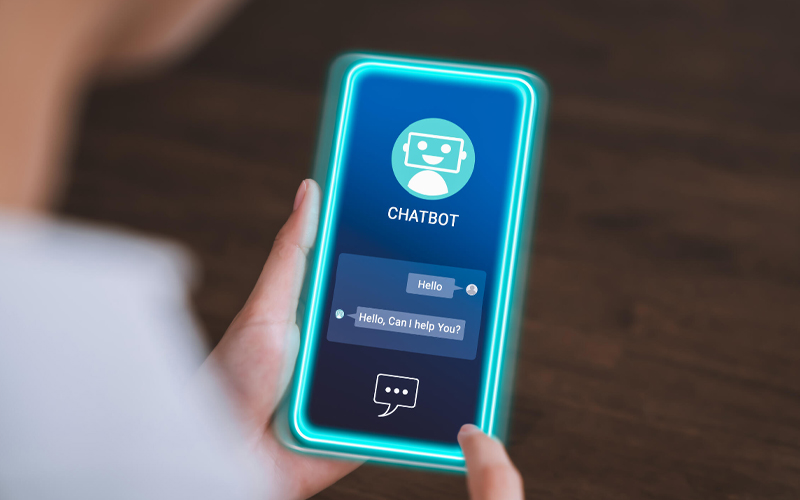The rapid rise of GenAI has sparked both curiosity and concern. As businesses turn to GenAI to automate tasks once performed by humans, employees remain uncertain whether their skills will remain relevant in the AI-first world. But are our jobs truly at risk? Or are we on the cusp of a new era of augmented human potential?
Fear of job loss due to new technology has been a perennial cause for concern. From the first industrial revolution to the ongoing GenAI-led digital transformations, each wave of innovation has raised concerns about machines replacing human workers. Yet history shows these shifts also lead to higher growth and improved quality of work and living. Similarly, GenAI is not here to substitute knowledge workers; it’s here to enhance their capabilities and elevate the nature of work.
This blog explores how GenAI is transforming customer experience, addresses common fears of job displacement among knowledge workers, and highlights what it takes to thrive in the age of GenAI.
Rethinking Job Security in the GenAI Era
New technologies are a catalyst for change. They force us to adapt, learn, and reimagine the way work is done. GenAI is no exception. But what sets it apart is its unprecedented reach into knowledge work. Unlike earlier technological shifts that primarily affected manual labor, GenAI is capable of handling higher-order tasks that require cognitive and creative skills, such as writing content, analyzing data, and even some decision-making processes. Fear of job loss, then, is valid, for it is a natural response to change. But the reality is much more subtle.
Far from replacing knowledge workers wholesale, GenAI is augmenting human work for the better. In customer experience specifically, GenAI is handling routine inquiries, enabling human agents to focus on complex problem-solving, high-value tasks, ethical decision-making, and emotional engagement with customers – areas where humans still far outperform GenAI.
According to a Gartner study, 80% of customer service representatives who’ve integrated GenAI tools into their workflow report higher job satisfaction. The takeaway? GenAI integration improves operational efficiency of repetitive tasks and allocates more time to meaningful customer interactions that require empathy and creativity.
Transforming Industries through Human-AI Collaboration
GenAI has undoubtedly opened doors to innovation and operational excellence for businesses across industries. But the human element is still key to building trust and loyalty among customers. Here’s how GenAI is augmenting human capabilities and elevating the nature of work across industries:
- Enabling financial advisors to serve more clients: GenAI hasn’t replaced financial advisors; it has amplified their capabilities. By automating document processing and routine inquiries, analyzing client data, and tracking client sentiment and behavioral patterns, GenAI has made financial advisors more efficient, proactive, and client focused, enabling them to serve more clients with greater levels of precision and personalization.
- Empowering healthcare workers to deliver better quality of patient care: In healthcare, GenAI is handling appointment scheduling and basic triage which reduces the administrative burden on healthcare workers and allows clinical staff to spend more quality time with patients. Besides workflow automation, GenAI also improves diagnostics and risk assessments, informing key decisions and transforming patient care for the better.
- Elevating retail workers to personalized shopping consultants: GenAI-powered virtual shopping assistants are changing the face of retail. By resolving simpler queries and answering basic product questions, GenAI is freeing up human associates to focus on addressing complex queries and offering individualized support and shopping recommendations. While the human touch is still essential for building trust and loyalty, GenAI is helping businesses scale personalization to unprecedented levels.
More importantly, human-AI collaboration is driving the evolution of contact centers from cost centers to revenue generators through meaningful customer engagement. It's also worth noting that businesses implementing GenAI effectively aren’t reducing headcounts – they’re reallocating human talent to higher-value activities and expanding their customer service capabilities.
Essential Skills to Thrive in the GenAI Era
GenAI excels at processing data and generating insights. But it’s humans who provide the context, nuance, and ethical judgment that make those insights matter. As businesses integrate GenAI tools into their operations, inherently human skills are becoming more valuable than ever. Here’s how both businesses and employees can adapt and thrive in the current landscape:
- Embracing a learning mindset: Continuous learning is crucial to adapt, change, and keep up with the age of GenAI. Instead of starting with a foundation of fear, it’s far more productive to be curious and explore how GenAI tools can improve efficiency, make work more meaningful, and elevate customer experience.
- Developing skills that complement GenAI capabilities: Rather than compete with GenAI in areas where it’s already outperforming humans, it’s now becoming necessary to develop skills that complement GenAI capabilities. Emotional intelligence, critical thinking, creativity, and complex problem-solving are defining human skills that GenAI systems cannot touch. Developing these skills, learning about these tools, and training employees to integrate GenAI in daily tasks will play a crucial role for humans to function as overseers of AI systems.
- Exploring opportunities to design and implement AI systems: The current landscape offers a host of opportunities for those actively participating in the design and implementation of GenAI systems. Workers should capitalize on such opportunities to build capable and trustworthy GenAI models and understand how to work alongside them to improve their workflows, elevate customer experience, and be at the center of all things AI.
Organizations too need to take a human-centered approach to GenAI implementation. This means involving frontline employees in the process, being transparent about changes, and investing in reskilling programs.
Riding the AI Wave with Resilience and Vision
Moving forward, the rate of change will continue to accelerate, especially with the emergence of Agentic AI systems that can take more autonomous actions on behalf of businesses while still maintaining appropriate human oversight. This will further transform customer experience roles, with humans focusing on handling exceptional cases, thinking strategically, and building relationships.
AI-led transformations are evolving the workforce, not shrinking it. Just as the advent of social media led to the creation of roles that never existed before, like social media manager and content strategists, GenAI is also creating a need for entirely new job categories like human-AI collaboration specialists, AI integration facilitators, and AI ethics consultants.
In the rapidly evolving space, it’s essential to approach GenAI with curiosity rather than fear. It’s equally crucial to explore how these technologies work, how they could improve work, and focus on developing human skills that complement GenAI capabilities in the workplace. The future belongs to those who can collaborate effectively with technology rather than compete against it. Those who can overcome their fears and embrace AI as an opportunity to learn will transform their work, become agents of growth and change for their organizations, and serve customers meaningfully.
How can Infosys BPM help?
At Infosys BPM, we ensure our “AI-first” practice amplifies human capabilities. We invest thoughtfully in upskilling programs that help our team members develop distinct human skills that complement GenAI in improving customer experience. Our implementation of GenAI in customer service environments has resulted in an increase in first-call resolution rates while simultaneously increasing agent satisfaction scores.
Get in touch with our team today to explore how your business can responsibly integrate GenAI-powered solutions to raise employee satisfaction levels, elevate the nature of work, and engage customers meaningfully.







